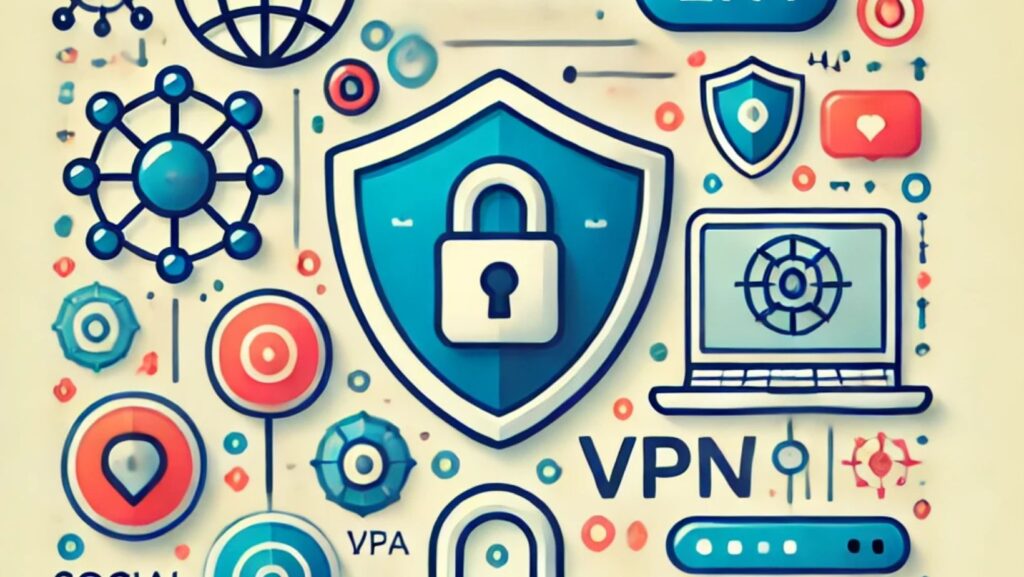In today’s digital age, safeguarding your data has never been more critical. College students, in particular, are frequent internet users, engaging in everything from social networking to online banking and classwork. This increased exposure, however, also heightens the risk of data breaches, identity theft, and cyberattacks. Knowing how to stay secure online is essential for maintaining privacy and preventing the misuse of personal information.
The first step in protecting yourself online is understanding the types of risks that exist. Phishing scams, malware, and unsecured networks are some of the most common threats. Cybercriminals often target students through fake emails and social media scams, tricking them into revealing sensitive information. Being aware of these tactics can help you recognize suspicious activity and avoid falling victim to scams. Learning how to identify these types of online traps is crucial, as it can prevent not only data theft but also financial and personal harm.
One common example is phishing. Phishing scams are usually disguised as legitimate requests—often from banks, universities, or popular service providers—that encourage users to click on links and enter their login credentials. Falling for these scams can compromise both your passwords and personal data. Recognizing a phishing attempt often comes down to examining small details, such as unexpected language, unknown senders, or unusual URL links.
Cybersecurity for College Students
For those in college, enhancing online security means knowing about cybersecurity for college students. Familiarizing yourself with specific cybersecurity practices and resources can go a long way in protecting your data. By exploring guides designed for students, you can gain valuable insights on how to keep your online presence secure and minimize risks. These resources cover everything from essential habits like password management to more advanced practices like data encryption and two-factor authentication.
Keeping up with cybersecurity trends is also beneficial, as technology evolves quickly, and so do cyber threats. College students who stay informed about new tools and methods can better protect their data. You don’t need to become an expert, but understanding the basics of cybersecurity for college students can empower you to handle many online threats more effectively.
Strengthen Your Passwords
One of the simplest ways to improve your online security is by using strong, unique passwords for each account. Avoid common passwords or reusing the same password across multiple sites. Instead, use a combination of letters, numbers, and symbols, and consider using a password manager to keep track of them. Strong passwords make it more difficult for hackers to gain access to your accounts. For instance, passwords that are 12 characters or more and contain random characters are statistically harder to crack than shorter ones.

Many students overlook the importance of regularly updating their passwords. While it may seem tedious, changing your passwords every few months can significantly improve your account security. Some password managers offer automatic updates and secure storage, simplifying this process.
Protect Personal Information on Social Media
Social media is a great way to stay connected, but sharing too much personal information can expose you to risks. Avoid sharing sensitive details like your home address, phone number, or anything that could be used to guess your security answers. Regularly review your privacy settings to control who can see your posts and profile information.
Another way to limit exposure is to be selective about friend requests and follower approvals, especially if your profile includes personal details. Some cybercriminals create fake profiles to gather information on potential targets. Being cautious about accepting unknown connections can reduce the risk of becoming a victim of social engineering, where attackers manipulate users into revealing confidential information.
Secure Your Devices
Keeping your devices secure goes beyond just setting a password. Ensure that your operating system, apps, and software are updated regularly to protect against security vulnerabilities. Additionally, avoid downloading apps or files from unverified sources, as these could contain malware. College students are often targets of malware disguised as helpful resources or study aids, so downloading from trusted sources is vital.
Installing antivirus software and enabling firewalls on your devices can further enhance security. These tools act as barriers against unauthorized access and harmful software, keeping your personal data safe. Enabling automatic updates on your antivirus software also helps defend against new malware variants that emerge.
Use Secure Networks and VPNs
Public Wi-Fi networks are convenient, but they often lack security, making it easier for hackers to intercept your data. If you must use public Wi-Fi, consider connecting through a Virtual Private Network (VPN), which encrypts your data and provides an extra layer of security. Always be cautious about accessing sensitive accounts over unsecured networks.

A VPN is especially helpful if you need to access accounts or personal information while studying on the go. Many affordable VPN options provide reliable encryption, allowing you to browse securely. Using secure networks, especially for online transactions and sensitive information, can prevent third parties from intercepting your data.
Enable Two-Factor Authentication (2FA)
Two-factor authentication (2FA) adds an additional step to the login process, making it harder for unauthorized users to access your accounts. Many services, including email and banking apps, offer 2FA options, where you enter a code sent to your phone or email in addition to your password. This layer of protection can make a big difference in safeguarding your personal information.
By following these internet safety essentials, you can navigate the online world with greater confidence, knowing your personal data is well-protected. Taking small steps now can prevent major data breaches in the future, ensuring your online experience remains safe and secure.



